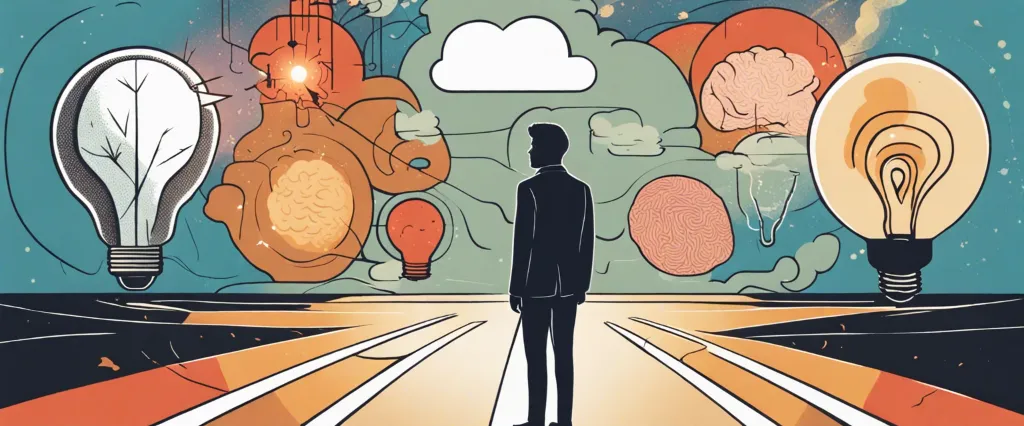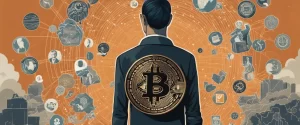
In the vast realm of literature, certain books have the power to engender profound introspection, challenging the readers’ understanding of the world around them. This comparative study aims to explore and analyze two such profound works, “Out of Control” by Kevin Kelly and “Homo Deus” by Yuval Noah Harari. These two groundbreaking publications offer unique perspectives on the intricate phenomena surrounding technology, its impact on humanity, and the potential trajectories of our future.
Out of Control delves into the awe-inspiring world of emerging technologies, unraveling the complex dynamics between these advancements and the human species. Written in 1994, Kevin Kelly weaves a rich tapestry of thoughts, exploring the symbiotic relationship between humans and technology. By examining examples like the Internet, robotics, and artificial intelligence, Kelly compellingly argues for embracing technology as a natural extension of humanity’s evolutionary trajectory.
Conversely, Harari’s “Homo Deus” presents a thought-provoking vision of the future, navigating the terrain of our species’ ongoing evolution. Published in 2015, this captivating work propels its readers into a world driven by technological advancements, contemplating the significant challenges and opportunities that lie ahead. Harari raises crucial questions about the transforming nature of technology and its potential consequences for life, death, and the very essence of human existence.
With their distinctly diverse approaches, both Kelly and Harari emerge as leading voices on the subject of human coexistence with technology. By examining the commonalities and disparities between their works, this comparative study aims to shed light on the overarching themes and underlying philosophies found within “Out of Control” and “Homo Deus.” We will explore how their ideas converge, diverge, and contribute to our collective understanding of the reciprocal relationship between humans and technology, all while examining the different lenses through which they view our complex destiny.
Throughout this study, we will address the following key areas of inquiry:
1. Perspectives on Technological Evolution: How do Kelly and Harari define and conceptualize technological advancement and its impact on humanity? How do their respective frameworks inform their understanding of the future?
2. Implications of Interconnectedness: What are the shared insights on the interdependence between technology and humanity in both books? How do Kelly and Harari explore the potential consequences of this interplay?
3. Human Agency and Technological Determinism: To what extent do Kelly and Harari contend with the tensions between human agency and the deterministic forces of technological progress? How do their arguments shape our perception of technological evolution?
By closely analyzing the pivotal themes embedded within these seminal works, this comparative study endeavors to unravel the intricate relationship between humans and technology. Our exploration will not only enhance our understanding of these books’ individual contributions but also offer a greater appreciation for the multifaceted nature of technological advancement and its ever-changing influence on our collective destiny.
Brief Summary of Two Books
Out of Control by Kevin Kelly
“Out of Control” by Kevin Kelly is a thought-provoking exploration of the relationship between technology and biological systems, arguing that complex systems tend to organize themselves through a set of common principles. The book takes readers on a fascinating journey through various domains, including artificial intelligence, genetic engineering, robotics, and chaos theory, to unveil a new perspective on how technology evolves and influences human society.
Kelly introduces the concept of a “hive mind,” suggesting that decentralized networks possess an inherent order and efficiency, similar to the workings of biological ecosystems. He argues that by embracing complexity and allowing systems to self-organize, we can unlock the potential for innovation and adaptation.
Throughout the book, Kelly discusses examples of emergent behavior in various fields, emphasizing the power of self-organization and distributed decision-making. From exploring the creation of artificially intelligent robots that learn from their environment to the potential opportunities and risks of genetic engineering, Kelly illustrates how technological advancements can lead to unpredictable outcomes.
Additionally, “Out of Control” delves into the ethical and philosophical implications of these emerging technologies, raising questions about humanity’s role in a world increasingly driven by machines. Kelly challenges traditional notions of control and encourages readers to embrace the complexity and unpredictability of technology, highlighting the potential for positive change if we navigate these systems responsibly.
Overall, “Out of Control” offers a captivating and thought-provoking examination of the relationship between technology, biology, and human society, providing readers with a fresh perspective on the potential of self-organizing, complex systems in shaping our future.
Homo Deus by Yuval Noah Harari
Homo Deus: A Brief History of Tomorrow” by Yuval Noah Harari is a thought-provoking exploration of the future of humankind. Building upon his previous work, “Sapiens,” Harari delves into the potential paths that humans may take in the coming decades and centuries.
The book argues that while humanity has made tremendous progress in conquering famine, disease, and war, we are now shifting towards a new era where our focus will shift from basic survival to attaining happiness, immortality, and divinity. Harari posits that we may witness the emergence of a new species, “Homo Deus,” which harnesses advanced technologies such as artificial intelligence, genetic engineering, and nanotechnology to transcend our current limitations.
Harari explores how these technological advancements could lead to unprecedented levels of power for humans, enabling us to redesign our bodies and minds, conquer aging, and increase our cognitive abilities. He discusses the potential consequences of these developments, including the concentration of power in the hands of an elite few, increasing inequality, and the potential marginalization of humans as artificial intelligence surpasses our abilities.
Harari also delves into the impact of such changes on religion, as traditional beliefs and ideologies may struggle to compete with the rapid advancements of science and technology. He examines alternative belief systems that could emerge in this new era, such as dataism, which venerates information as the most important force in the universe.
Ultimately, “Homo Deus” challenges readers to question what it means to be human and envisions a future where we may fundamentally transform the nature of our existence. Harari encourages us to critically engage with the ethical, social, and political implications of these developments to ensure that the benefits of progress are shared by all and that humanity retains its relevance in a world potentially dominated by superhumans and sophisticated algorithms.
Comparison between Two Books

Similarities in Anthropology
Both “Out of Control” by Kevin Kelly and “Homo Deus” by Yuval Noah Harari touch upon the subject of Anthropology, albeit from different perspectives and contexts.
1. Anthropocentric Shift: Both books examine the changing role of humans in relation to the world around them. Kelly’s “Out of Control” discusses how technology and complex systems have reduced human control and agency, allowing non-human entities to play a significant role. Harari’s “Homo Deus” explores the emergence of humans as gods, suggesting that our increasing reliance on technology and algorithms may diminish our centrality within the ecosystem.
2. Technological Evolution: Both authors acknowledge the transformative power of technology on human society and culture. Kelly’s book delves into the growing interconnectedness of technological systems and how they operate beyond human comprehension, highlighting the potential for unexpected emergent behavior. Harari’s work explores the rapid advancement of technology and its impact on human existence, envisioning a future where humans may be surpassed by artificial intelligence and algorithms.
3. Human Agency: While exploring the implications of technology, both books touch upon the concept of human agency amidst these changes. Kelly’s “Out of Control” emphasizes the need to embrace uncertainty and surrender control, as complex systems evolve and adapt beyond our understanding. Harari’s “Homo Deus” questions the notion of free will, suggesting that advancements in AI and data analysis may lead to a future where human decisions are more accurately predicted and influenced by algorithms.
4. Ethical Considerations: Anthropology in both books involves a critical examination of the ethical dimensions of our changing relationship with technology. Kelly raises concerns about unintended consequences and the potential loss of privacy and control when systems become too complex. Harari also explores ethical implications, posing questions about the possible consequences of humans assuming the role of gods and the impact on societal values and individual rights.
In summary, both “Out of Control” and “Homo Deus” delve into the realm of Anthropology by analyzing the changing role of humans in relation to technology and complex systems. They discuss the transformative power of technology, the diminishing human agency, the ethical implications, and the potential future trajectories of human existence.
Divergences in Anthropology
Both “Out of Control” by Kevin Kelly and “Homo Deus” by Yuval Noah Harari explore the future of humanity and the impact of technology on our society. While both books touch on the topic of Anthropology, they diverge in their approach and focus.
In “Out of Control,” Kelly delves into the emergence of a new kind of system biology, which he calls “the technium.” He argues that the technium is an evolving global organism that encompasses technology, networks, and human behavior. Kelly discusses how the advancement of technology, specifically artificial intelligence and robotics, will blur the line between humans and machines. He believes that these technologies will bring about new forms of consciousness and intelligence, leading to a redefinition of what it means to be human. However, Kelly’s approach is more centered on the potential of technology and its implications for Anthropology, rather than delving deeply into the discipline itself.
On the other hand, “Homo Deus” by Harari focuses on the broader historical and philosophical aspects of Anthropology. Harari examines the past and present of Homo sapiens, exploring the social, cultural, and cognitive developments that have shaped our species. While he acknowledges the impact of technology, such as the agricultural revolution and the rise of algorithmic decision-making, Harari places more emphasis on the historical and societal factors that have influenced human evolution. He argues that humans have always sought to gain control and overcome their limitations, and our dominion over the world is now shifting towards the exploitation of data and bioengineering. Harari’s perspective on Anthropology is more rooted in the historical context and the implications of human agency, rather than a singular focus on the technological aspects.
Therefore, the divergence between the two books lies in their approach to Anthropology. “Out of Control” focuses more on the potential of technology to redefine human existence in the future, while “Homo Deus” offers a broader historical and philosophical exploration of Anthropology, considering the impact of societal and cultural factors alongside technological advancements.

Conclusion
Both “Out of Control” by Kevin Kelly and “Homo Deus” by Yuval Noah Harari are highly regarded books that offer valuable insights on different topics. Deciding which book is more worthy of reading depends on your personal interests and what you are looking to learn or explore.
“Out of Control” by Kevin Kelly is a book that delves into the concept of emergent properties, exploring how complex systems, such as the internet, evolve and adapt. It discusses the idea that as technology advances, it becomes beyond human control and takes on a life of its own. If you are interested in understanding how intricate systems evolve and their implications for our world, this book is worth reading.
On the other hand, “Homo Deus” by Yuval Noah Harari offers a thought-provoking exploration of the future of humankind. It examines the direction that humanity might take as we evolve into a post-human era, suggesting that we may become more focused on immortality, happiness, and divine-like capabilities. If you are interested in contemplating the potential paths our species may take, this book provides a fascinating perspective.
Ultimately, both books offer unique and valuable insights, so the decision on which is more worthy of reading depends on your personal interests and which topic resonates with you more.



